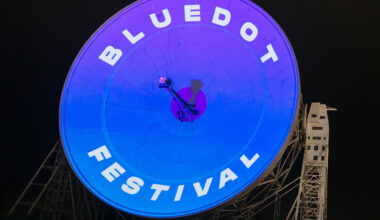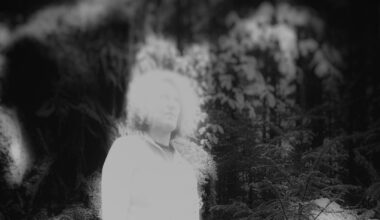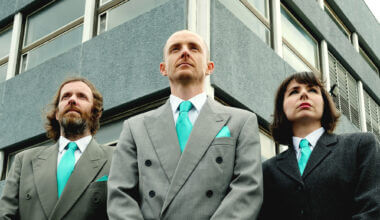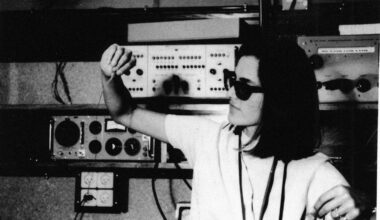Originally released in 1990 and reissued this month, The Beloved’s ‘Happiness’ album appealed to ravers and the pop charts alike. Jon Marsh reveals the full story of one of the classic records of the post-acid era
When the blissed-out after-rave anthem ‘The Sun Rising’ hit the UK charts in October 1989, it put London electronic pop duo The Beloved at the front of the queue of those surfing the wave of the long, hot, E-fuelled acid house summer that had gone before.
‘The Sun Rising’ arrived ahead of other classics of the genre, such as 808 State’s ‘Pacific State’, Orbital’s Chime’, and Primal Scream’s game-changing ‘Loaded’. These were all tracks that adopted the full range of electronic production techniques used by American house music pioneers in cities like Chicago and New York.
The Beloved’s breakthrough album ‘Happiness’ followed in early 1990, revealing Jon Marsh and Steve Waddington as gifted producers with a feel for the sound of their times. Alongside ‘The Sun Rising’, the tracks included ‘Hello’, an impudent slice of zeitgeist-grabbing electropop with an intriguing lyrical roll call (“Willy Wonka, William Tell / Salman Rushdie, Kym Mazelle”), and ‘Your Love Takes Me Higher’, a dramatic, ravey fusion of Frankie Knuckles and the Pet Shop Boys.
Although The Beloved continued as an entity for two further albums, Marsh and Waddington’s working relationship ended in 1991. The band released a total of four studio sets (plus a remix collection), yet only ‘Happiness’ stands as a truly definitive record of their era. A newly remastered edition of the album will be reissued shortly.
“‘Happiness’ was a document of my own awakening to and immersion in the music of club life,” says singer and lyricist Marsh, speaking from the remote Cornwall home he shares with his wife Helena and their three teenage children. “It was an honest depiction of clubbing and it resonated with everybody who experienced it.
“It wasn’t seeking to glorify the acid house scene, or to be judgemental towards people who didn’t want to participate in it either. It certainly wasn’t ever meant to be, ‘Right, you need to take ecstasy to understand this’. But hopefully it was a conduit to that feeling for people who had never gone near a club. I didn’t want to make a record about acid house, but it’s what my life was at the time and that’s why it sounded like it did.”
Jon Marsh was born in south London in 1965, the youngest of four children by at least a decade. He puts his eclectic taste in music down to his upbringing, which he spent listening to The Sweet and Wizzard while his elder siblings played David Bowie and Roxy Music. A little later, his sister’s cool boyfriend introduced him to Kraftwerk. By 1979, his interests had blossomed to include new wave and synthpop.
“I had no ability to play a musical instrument,” he says. “I’d taken piano lessons and was told I had zero skills, which is true, but that’s not the point.”
With a punkish disregard for musical rules, Marsh played drums in his school band and auditioned for other groups through adverts in Melody Maker. He joined an outfit called Twelfth Of August when he was 16, which is where he met guitarist Steve Waddington.
“Steve is five years older than me,” says Marsh. “He’d been to university and had a different outlook on life, but he was really chilled and effortlessly talented. The minute he joined Twelfth Of August, he was so obviously the best thing about the band that it made me re-evaluate what I was doing. He was really receptive to my rudimentary songs, which gave me confidence. He had all the musicality that I still don’t have, although I think I’m stronger with the ideas.”
In 1983, the pair split off as a duo, The Journey Through, soon adding bass player Tim Havard and renaming themselves The Beloved. They recruited drummer Guy Gausden so they could play a session for John Peel. In 1986, their first couple of singles made the UK independent chart Top 20. Their debut album, ‘Where It Is’, another minor indie success, was released the following year. Yet this period was only a dry run for the group, as the times caught up with their tastes and ambitions.
“Between 1981 and 1983, I dedicated myself to following New Order around the country’s small venues,” says Marsh. “It’s glaringly obvious in our early music that they were a huge influence, in the organic way they were trying to fuse electronics with a rock dynamic. We started more like that, but we drifted into the rocky side of it, which I got bored with. It didn’t suit my voice in the way that singing against electronics does.”
In the meantime, the musical world had turned around them.
“By 1985 or 1986, the Def Jam stuff started filtering over here, then the early Mantronix records,” continues Marsh. “We suddenly had people making extraordinary sounds with drum machines, and that was the death knell for The Beloved as a four-piece rock group. It was like, ‘Wow, this is what you can do with machines now’. The electronics on New Order songs were always very busy and clattery, then suddenly you had these beats that were much bigger and emptier and more exciting.”
The turning point was ‘Forever Dancing’, the B-side to The Beloved’s 1987 single ‘Surprise Me’, whose chiming indie dynamic was underpinned by an austere, snapping drum machine rhythm.
“That was the one that changed everything for us,” says Marsh. “It was the realisation that by trying to sound like the artists that excite you, you end up being completely different. You’re not LL Cool J, but by trying to imitate him, you end up with your own version.”
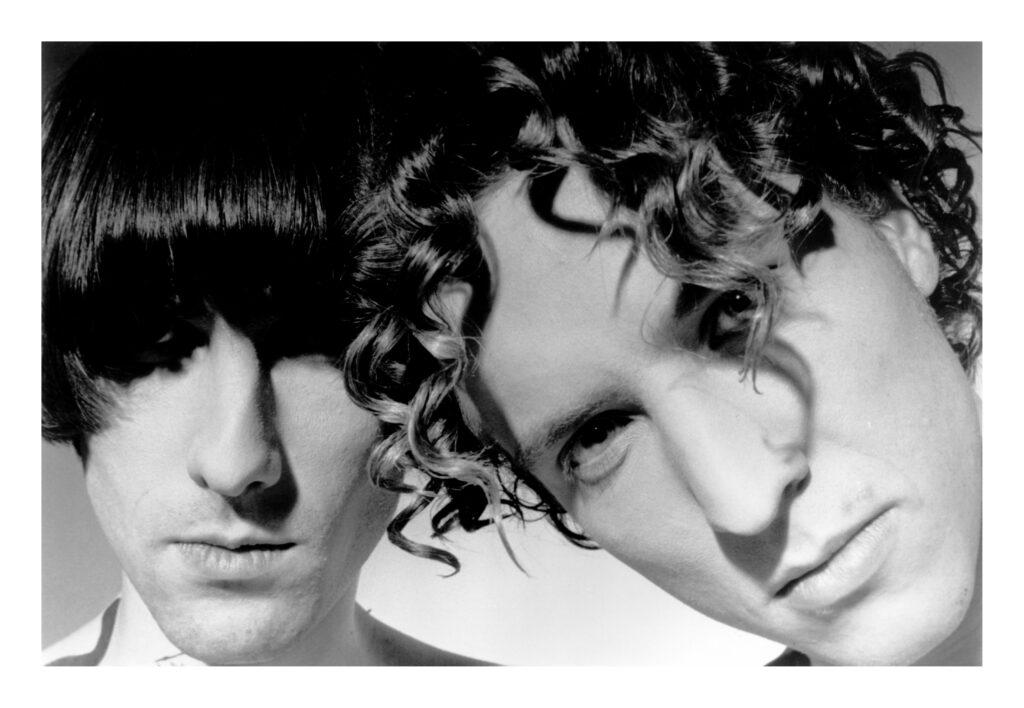
The next step came through a succession of happy accidents. First, The Beloved had the bulk of a second album finished when Flim Flam, the indie label they were signed to, ran out of money. Then, in early 1988, they were signed to the major label WEA as a duo once more.
“They tried to market us as a pretty-boy pop band,” notes Marsh. “Our first single had a fold-out poster sleeve for goodness sake! We were just happy to get the deal, so we let them put us with the producer of their choice. The first two singles, ‘Loving Feeling’ and ‘Your Love Takes Me Higher’, were massive failures and we were about to get dropped. At the time, it felt like a disaster.”
As luck would have it, though, the programmer on those two singles was Martyn Phillips, whose technical skills impressed Marsh and Waddington. With nothing to lose, they convinced WEA to secure Phillips as their producer, alongside some cheap studio downtime at night and at weekends. Their reward was creative freedom, which they used to craft ‘Happiness’.
“I can’t overstate Martyn’s importance,” says Marsh. “He was a similar age to us and we were all just really excited about it. And, of course, throughout 1988 and 1989, I was also going out to acid house nights and hearing a vast amount of music there.”
Marsh first visited the London acid club Shoom, which DJ Danny Rampling started in a fitness centre in Bermondsey, in March 1988.
“It was like walking into a dreamland,” he recalls. “In London, clubs had always been very standoffish, very cliquey, but this room was going mental to music I’d never heard before. The mad thing was, people had been making these tracks in Chicago for three or four years, but they hadn’t been heard here, so they were cherry-picking all the best records from this period.
“It was incredible. It changed my life in one evening. It was all about the moment and a shared sense of euphoria. Jesus, I wanted to provoke that reaction in people, to give them that much happiness. So how could I create my own response to this? How could I make those sounds?”
Although Waddington wasn’t as immersed in the hedonism of the acid scene as Marsh, he also loved the music. Within three weeks, the pair had composed their own prototype club track, ‘Acid Love’ (later released as the B-side of ‘Loving Feeling’), and Marsh presented a cassette of it to Danny Rampling at Shoom.
“He played it the next week on his show on Kiss FM, which was still a pirate station at that point,” recalls Marsh. “To me, that was as exciting as getting our Peel session.”
Marsh and Waddington finished recording ‘Happiness’ during the spring of 1989. They had to wait almost a year before it appeared in the shops, but it benefited enormously from the success of ‘The Sun Rising’ in the interim. The track is a clear highlight of the album, although Marsh also retains a soft spot for ‘Your Love Takes Me Higher’. Despite its initial flop as a single, it fared much better when it was reissued after ‘The Sun Rising’ and ‘Hello’ had been UK Top 30 singles.
“To me, ‘Your Love Takes Me Higher’ was the first time we created something that took the essence of Chicago house and turned it into a pop record,” says Marsh. “In terms of sounding great on the radio and at volume in a club, it worked. Some of the songs on the album were written in one fell swoop and some were pieced together in the studio. ‘Hello’ started out as a different song completely, for example. As it changed direction, it became imbued with a sense of throwing everything but the kitchen sink in – let’s have a guitar solo, let’s have some silly noises. The list of names was frivolous, but really quite catchy.
“The Sun Rising’ is miles apart, in terms of the way it sounds, but it’s good to have that breadth on one album. Although it’s a house track, it’s more of a chill-out vibe, and it’s about going home rather than being in a club. I wrote the lyrics at 6am, having just come home one morning. When you have the best nights out ever, you don’t remember everything in detail, you have tiny memory glimpses of things that happened. That’s what the song is about, it’s about fragments of experiences.
“Then there’s the last track on the album, ‘Found’, which was written at the point where we realised this was all going to come together and get released properly, so I sat down specifically to tie up the loose ends. It was a nod back to how we’d sounded as a four-piece group – the most simple, rock guitar-driven track on there – so it was a little bit like closure for me. It gave the album a perfect symmetry.”
Get the print magazine bundled with limited edition, exclusive vinyl releases

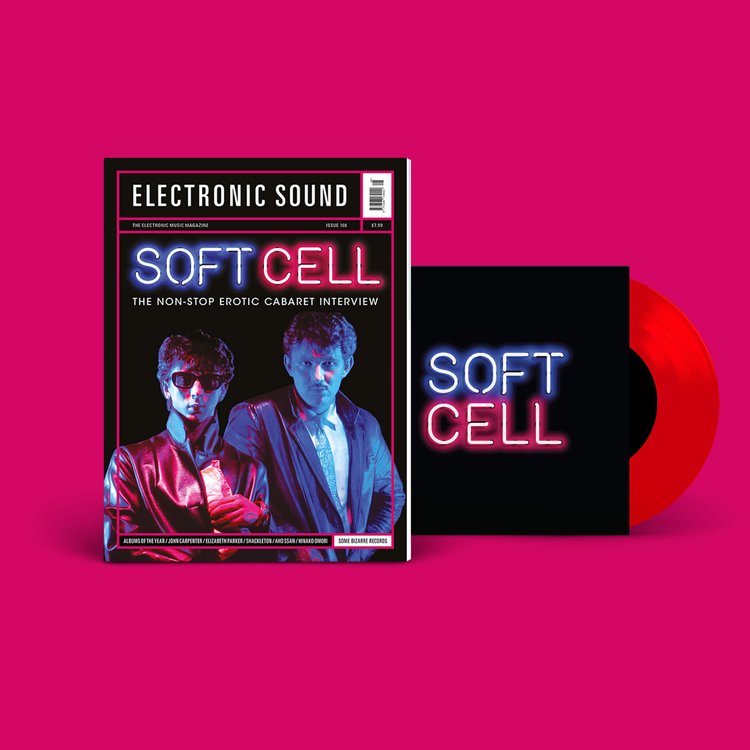

By late 1990, the lengthy promotional cycles for ‘Happiness’ and its two hit singles had exhausted Marsh and Waddington. Their only recordings during this time were updated mixes of existing songs for the ‘Blissed Out’ remix package and the accompanying single ‘It’s Alright Now’.
“And then we got hit by two court cases – bang! – one after the other,” says Marsh.
One of these related to a sample of soprano singer Emily Van Evera on ‘The Sun Rising’, taken from a 1981 recording of ‘O Euchari’ by the vocal ensemble Gothic Voices. The other was a dispute with The Beloved’s former managers, who Marsh has since reconciled with.
“I’m not disputing that sample was unauthorised, but we told the label about it and asked if we needed to do anything, and they fucking well told us not to,” says Marsh. “Yet when we got sued, we took all the flak. I was very angry about that.”
The Beloved’s legal troubles also had consequences far beyond finances.
“We lost all the fun, the momentum, the incentive for everything we were doing,” says Marsh. “Steve and I had moved in different directions, both musically and personally, and it just drained away. There was no falling out, no main event, we just stopped working together, and that was that.”
It was anything but the end of The Beloved’s story, though. Waddington quit the music industry to start his own greeting cards business, but Marsh continued the band with his wife Helena. Their 1993 single ‘Sweet Harmony’ was a global hit, bubbling away on the same loved-up energy that had propelled ‘Happiness’, and the accompanying album ‘Conscience’ did extremely well.
Marsh says their life in The Beloved put a strain on his relationship with Helena and they decided to shelve the band – with Marsh subsequently also giving up his DJ career, which included residencies at famed London clubs Ministry Of Sound and Fabric in the 1990s and early 2000s – to concentrate on parenthood. Helena studied Fine Art and is currently retraining in bereavement counselling, while Marsh has a happily part-time music career.
In the past decade, Jon Marsh and Steve Waddington have begun to collaborate on music once again and they hope something might even see the light of day soon. Marsh is content with the fact that he got to watch his family grow up and he has never had to work at anything he didn’t want to. From the vantage point of a Cornish summer, he now thinks back to those nights at Shoom and the feeling of the records that he loved so much and wanted to emulate.
“In some small way, I think we managed to do it,” he says. “It was amazing.”
The remastered 30th anniversary edition of ‘Happiness’ is released by New State Music

